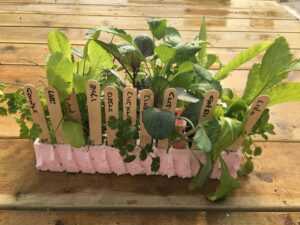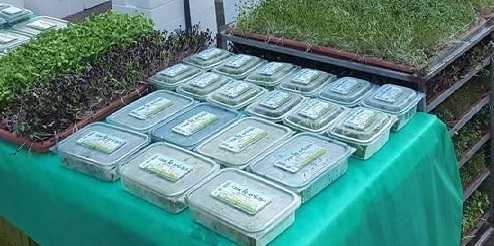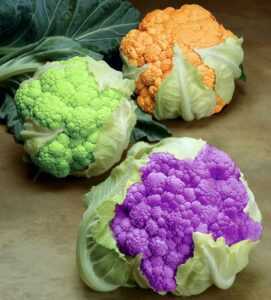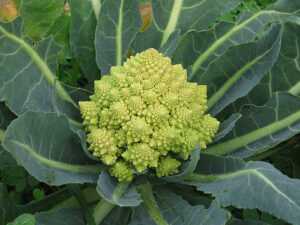‘Tis the season for the renewal of wonderful products to add to your boxes. This week we introduce the delectable dates of Neot Smadar.
 The southern-situated Kibbutz Neot Smadar is home to a large, diverse organic farm with fruits, vegetables, herbs, a goat herd and a vineyard. In addition, the kibbutz members operate a vineyard, olive press, an olive grove and a dairy where they produce various organic products from their farm.
The southern-situated Kibbutz Neot Smadar is home to a large, diverse organic farm with fruits, vegetables, herbs, a goat herd and a vineyard. In addition, the kibbutz members operate a vineyard, olive press, an olive grove and a dairy where they produce various organic products from their farm.
This is a short clip about the Kibbutz’s agricultural farm and its various production sectors
The kibbutz also created a fruit cultivation center where they produce date honey, date delicacies, jams, juices, nectars, dried fruit rolls, organic sweets and dried fruits, all primarily based on the homegrown fruit in the area. From this week, the Chubeza family can order excellent organic date honey (100% dates of course, no sugar or any additives) and health bars (truly healthy, comprised of fruit and grains, free of sugar or other additives), delivered in your boxes.
Order via our order system
_______________________________________________
The “Derech Hashatil” nursery is a small nursery in Shoham specializing in organic vegetable plants, working with the Shekel non-profit organization and employing only special-needs individuals. In their hothouse, the nursery produces excellent quality organic plants for your vegetable patch, placing top priority on the quality and health of the plants.
This winter they are now offering a planting kit for a winter vegetable garden containing an impressive selection of 60 winter plants: white and red cabbage, broccoli, kohlrabi, arugula, dill, scallion, parsley, coriander, lettuce, bok choy and more. The price of this kit is only 56 NIS. More details can be found here.
What a perfect opportunity to grow your own crops while supporting great people and partnerships. Please place your orders by emailing us. We will collate all the orders for the nursery and send you your winter garden kit in the very near future.
_________________________
Sliding Doors
The apple season has come to an end, and Tomer and Chamutal will be taking a break from preparing apple juice from Kibbutz Tzuba’s orchards, in their small factory in the Jerusalem hills. Their delicious cider, fruit jams and apple vinegar are preserved and will remain available throughout the winter. But we bid farewell to the fresh juice.
However, the calving season at the “Iza Pziza” Goat Farm is at its peak, and back comes fresh goat’s milk. By next week, we will also have labane spread and fresh yogurt. The rest of the products will gradually return. Welcome back!
______________________
Reminding you that we now have a new sprout grower: Udi from Moshav Achituv, who has been gr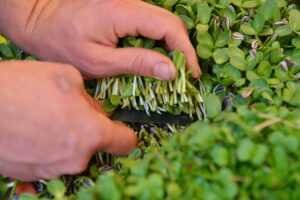 owing organic sprouts over the past four years under the label “Udi’s Sprouts“. From one tray of broccoli sprouts, he gradually grew to become a supplier of fresh sprouts to fine organic farms and health stores throughout the country. Among his products: kale sprouts, mustard sprouts, broccoli sprouts, alfalfa sprouts, sunflower, wheatgrass, sprout mix and more.
owing organic sprouts over the past four years under the label “Udi’s Sprouts“. From one tray of broccoli sprouts, he gradually grew to become a supplier of fresh sprouts to fine organic farms and health stores throughout the country. Among his products: kale sprouts, mustard sprouts, broccoli sprouts, alfalfa sprouts, sunflower, wheatgrass, sprout mix and more.
Here’s to sowing and reaping every day, with great love! Udi’s Sprouts are available in packages of 1/2 liter (10 NIS) or 1 1/4 liter (18 NIS). Check out the entire assortment in our order system.
____________________________________
The Power of the Flower
This week we will continue to tell cauliflower tales, beginning with praise for its health and nutritional values. As a member of the Cruciferae family, cauliflower is packed with cancer-fighting components (along with its relatives the green and purple cabbage, broccoli, kale, kohlrabi, arugula, rashad, mustard greens, Brussels sprouts, Chinese cabbage, turnips, and radishes). The primary anti-cancer elements they contain are sulforaphane and an indole compound.
Interestingly, sulforaphane is produced in the vegetables only when they are cut or bitten into, i.e., when an animal consumes them. Sulforaphane is an efficient antioxidant, but it also raises the level of certain protective enzymes in the body which act as “policemen” that capture the cancer-causing elements and send them into the bloodstream to be washed out of the body. These enzymes are also excellent antioxidants, and unlike regular antioxidants, they are not consumed while they work.
The indole compound in cauliflower and its fellow Cruciferae family members protects against breast cancer by influencing the estrogen hormone, although in various forms this hormone can actually encourage the development of breast cancer. Yet, on the one hand the indole compound activates the production of less active estrogen, the kind that does not encourage breast cancer, while on the other hand it reduces the production of a more harmful estrogen type. In order to reduce the threat of cancer, it is recommended to consume at least 2-3 weekly servings of vegetables from the Cruciferae family.
In addition to the photochemicals it shares with its powerful family, the cauliflower contains other photochemicals such as phytosterols and glucaric acids that contribute to the reduction of cholesterol levels in the blood. Another cholesterol fighter comes from the dietary fibers so rich in the cauliflower, which aid digestion and prevent constipation as well as slowing down the absorption of sugar and cholesterol from food. Of course, we cannot forget the venerable Vitamin C! One hundred grams of cooked cauliflower contain half of the daily-recommended portion of vitamin C.
The Cruciferae family has another connection to cancer prevention, one that is unique because it once again indicates why nature is so much more complex than simplified classifications of “good” “bad” “useful” and “harmful.” A perfect example is one of the family’s most famous pests: the cabbage butterfly. The female butterfly lays her eggs on the Cruciferae plants, and hungry caterpillars feed from the leaves of this prevalent family. They also swallow very spicy matter found in the leaves (mustard glycocids) and isolate it in their bodies. When the caterpillar grows, it uses this matter as a defense mechanism: if attacked by a predator insect, the caterpillar secretes concentrated glycocids which cause an irritation in the mouth, esophagus and stomach of the attacker. When it is pupated, the cabbage butterfly defends itself using an interesting toxin: pierison. This toxin destroys cells by breaking their DNA. All the cells die and renew themselves, except for cancerous cells. Research has indicated that pierison caused nine types of cancerous cells to “commit suicide.” Thus indirectly, by hosting the caterpillar that tortures it and eats its leaves, the martyred Cruciferae family takes an important role in battling cancer.
The cauliflower we know and love is white, and I told you how much effort we put into keeping it that way. But there are also cauliflowers that come in such diverse colors as purple, orange (rich in beta carotene) and green:
And a weird-looking variety as well, bearing a resemblance to a UFO:
Despite their different shapes and florescent colors, these cauliflower varieties are not the product of genetic engineering. They were developed in the traditional method of selecting plants of various types and crossing them with plants of other types until a colorful one is produced. Creation of this kind of species usually takes years, even decades. The result is amazing, even somewhat psychedelic. There are those who shy away from the vivid “unnatural” colors (which remain even after cooking, by the way); others delight in adding impressive new hues to the dinner table.
It is recommended to store any type of cauliflower in the refrigerator, wrapped in an unsealed plastic bag (the sulphur needs to escape, otherwise the cauliflower is tainted and rots), with the stem downwards in order to prevent moisture accumulation on the inflorescence. Stored correctly, cauliflowers can keep for two to three weeks, but are tastiest during the first several days. Afterwards the sweetness subsides.
Wishing you a great wintery week, with thirst-quenching showers. May you weather the storm well!
Alon, Bat Ami, Dror, Yochai and the Chubeza team
_______________________
WHAT’S IN THIS WEEK’S BOXES?
Monday: Parsley/bok choy/mizuna, kale/Swiss chard/spinach, beets/fennel/green bell peppers, sweet potatoes, cucumbers/Dutch cucumbers, lettuce, broccoli/cabbage, daikon/ radishes/turnips, tomatoes, carrots/Jerusalem artichokes, potatoes/pumpkin.
Large box, in addition: Cauliflower/kohlrabi, celery/celeriac, scallions.
Wednesday: Beets/fennel/kohlrabi, broccoli/cabbage/cauliflower, kale/Swiss chard/spinach, cucumber/red bell peppers, tomatoes, potatoes/pumpkin, sweet potatoes, bok choy/mizuna, daikon/ radishes/turnips, carrots/Jerusalem artichokes.
Large box, in addition: Garden peas/snow peas/scallions, celeriac, parsley
And there’s more! You can add to your basket a wide, delectable range of additional products from fine small producers: flour, fruits, sprouts, honey, dates, almonds, garbanzo beans, crackers, probiotic foods, dried fruits and leathers, olive oil, bakery products, apple juice, cider and jams, dates silan and healthy snacks and goat dairy too! You can learn more about each producer on the Chubeza website. On our order system there’s a detailed listing of the products and their cost, you can make an order online now!

